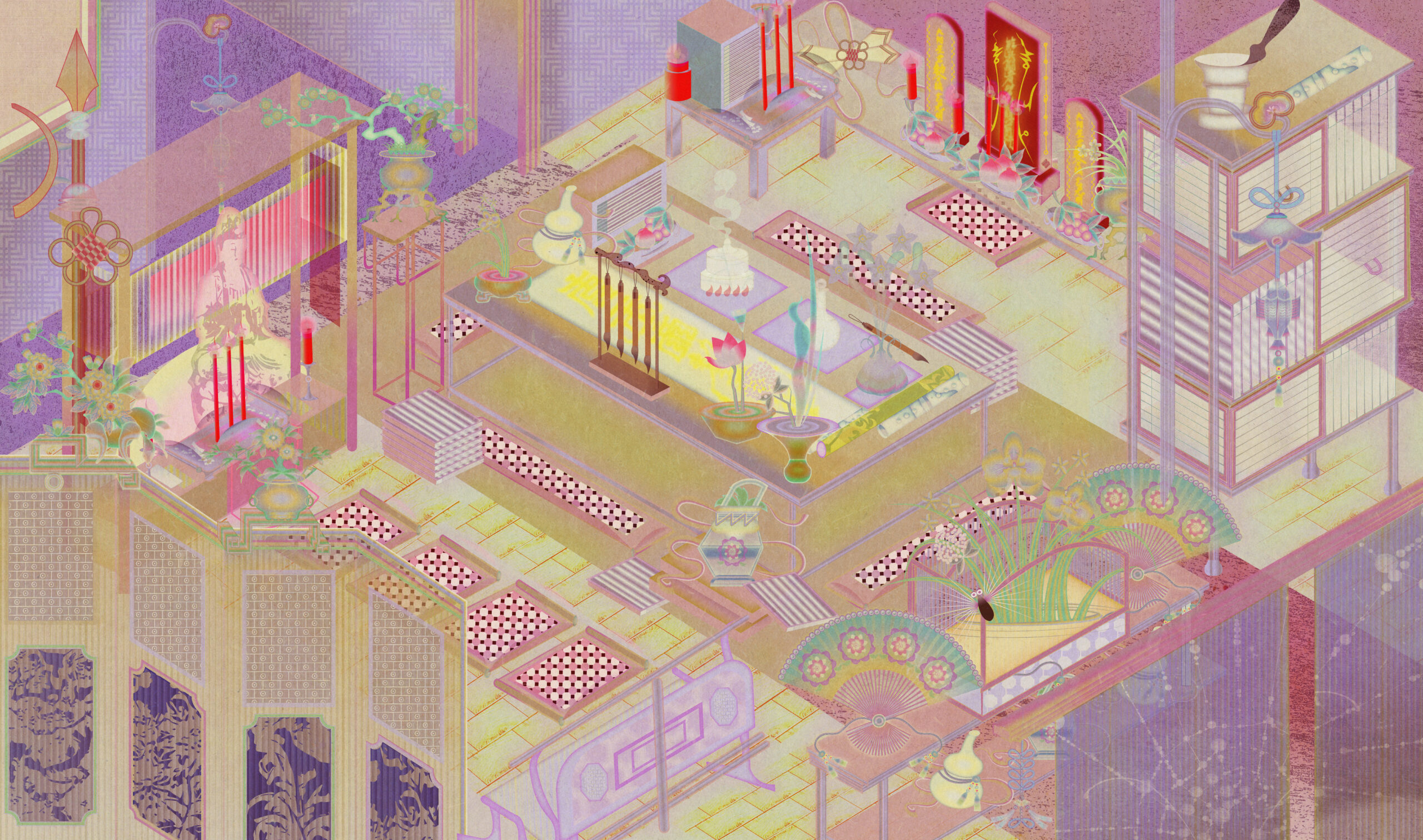LIU CHUANG
| March 16, 2011 | Post In LEAP 7

Liu Chuang is skilled at unearthing what is hidden beneath the surface of life’s quotidian systems. In doing so, he unmasks these systems as an apparatus that controls the perception of time, ensures the production of history, and protects the perpetuation of the species. And the moment they are questioned or doubted, their institutionalized essence is exposed. The thirteenth project in Taikang Space’s experimental series “51m2,” Liu’s solo exhibition took on a taciturn, introverted disposition; all of the works on display dealt with subjects universal to public life—an attempt to open the audience’s eyes to its own “deprived freedoms.”
A system can endow “deprivation” with the illusion of legitimacy. When the process of “deprivation” occurs by way of “conversion,” even those privy to it may overlook its existence. The installation Untitled (History of Sweat) (2007) simulates the aftermath of this “conversion” of power: Liu Chuang introduces an air conditioning unit into the gallery; installed backwards, it drains water at a constant temperature, the droplets gradually accumulating into an irregular formation on the floor. The true origins of the puddle are questionable—never before seen or noticed—and the audience is brought back to memories of routine experiences with air conditioners: the mechanism does, indirectly, drain one’s perspiration. In the summer this process ushers in comfort, but behind it is industrialized civilization’s denial of the individual’s most basic prerogative: to sweat.
The single-channel video work Untitled (Dancing Partner) (2010) expands the scope of the discussion; in the recording, two cars of the same make and model drive side-by-side through the city at the minimum speed limit (60 km); they strictly follow the regulations set by Liu Chuang, seemingly interfering with the order on the roads, but not to the point of causing congestion, let alone gridlock. While the audience watches from a vantage point far above, making moral judgments about the plot of the video, Liu reveals that the very substance of this “morality” is the power of the majority over the minority, and that the law is a product of the institutionalization of power. Everyday life demands that people have the patience to adapt to the rules; and once a certain rule has been acknowledged and accepted on a great enough scale, it can, conversely, become a tool for the restriction of individual freedoms. The implication is, “Anything that does not conform to the rules is automatically against them, and is thus malicious, illegal, and in need of regulation.” This ultimately leads to an enormous inherent moral pressure, one that squeezes out any of life’s potential poetry.
As for the works, Untitled (History of Sweat) can still be considered an installation in the conventional sense, whereas Untitled (Dancing Partner) is just a tracking shot of a fleeting performance—video purely as a medium for recording. The screen limits the audience’s experience of the real space in which the event occurred; it frames the content and a sole protagonist, withholding what might have been a more convincing reality and allowing its theatrical mode to more or less weaken the original features of the intervention as planned. The final result could serve as an experimental case study for social psychology. In his creative thought process, by examining and replaying the micro-systems of everyday life, Liu Chuang triggers our sensitivity to them, and makes us reconsider the social system embedded in our surroundings. Looking a bit more closely, one discovers that the presumptuous dependence on “constancy” exists in every detail of life—just as Untitled (History of Sweat) revealed the secret lifeforce hidden behind that common “constant,” the air conditioner. The paradox of breaking free from empiricism and abandoning constancy is the only way out for free radicals in the art world; touching each system’s bottom line is the most direct way to approach truth. Alternatively, Liu selects a more temperate, toned down position. Zhang Xiyuan

